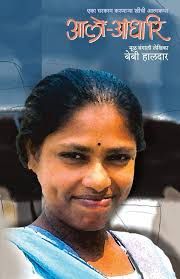Alo Andhari: Baby Halder's Illuminating Memoir of Darkness and Hope

“Alo Andhari” (translated as Light and Darkness) by Baby Halder is an extraordinary autobiographical account of a woman’s struggle against the odds. This book, hailed as a groundbreaking work in contemporary Indian literature, sheds light on the oppressive realities faced by women from marginalized sections of society. Baby Halder, who rose from the depths of poverty and abuse to become a celebrated author, uses her pen to bring attention to the grim conditions of domestic workers and the silent endurance of millions like her.
The Author’s Journey
Baby Halder’s life, as recounted in Alo Andhari, is a harrowing tale of survival and resilience. Born into a dysfunctional family, she experienced the loss of her mother at a young age, followed by neglect and abuse. At the age of 12, she was married off to a man nearly twice her age, thrust into a life of domestic violence and exploitation. Despite these challenges, Halder’s spirit remained unbroken.
As a single mother of three, she worked as a domestic helper in Delhi, barely making ends meet. It was during this time that her employer, a retired anthropology professor, noticed her intellectual curiosity and encouraged her to write. With his support, Baby Halder began to put her life story into words, channeling years of pain and suppressed emotions into what would become Alo Andhari.
Exploring the Themes of “Alo Andhari”
The memoir is a raw and unflinching narrative of the struggles faced by women in patriarchal and poverty-stricken societies. Halder’s writing reflects her experiences with brutal honesty, making the book an emotional yet eye-opening read.
Poverty and Exploitation:
Halder delves into the grinding poverty she experienced, which left her with few choices and subjected her to constant exploitation. Her story mirrors the lives of countless domestic workers who face indignity and neglect while working tirelessly for survival.
Domestic Violence and Patriarchy:
The memoir portrays the pervasive impact of patriarchal norms, particularly in rural India. Halder describes the physical and emotional abuse she endured at the hands of her husband, shedding light on how societal norms perpetuate cycles of violence against women.
The Struggles of a Single Mother:
As a mother, Halder’s determination to provide for her children despite her circumstances shines through. Her narrative is a testament to the sacrifices and resilience of women who shoulder the burden of single-handedly raising their families.
The Power of Education and Self-Expression:
Halder’s journey demonstrates the transformative power of education and self-expression. Writing became her means of reclaiming her identity, breaking free from societal constraints, and finding her voice.
Baby Halder’s Perspective
Halder’s work is more than just a memoir; it is her way of amplifying the voices of the voiceless. Through Alo Andhari, she challenges societal apathy towards domestic workers and marginalized women. Her story underscores the importance of recognizing their humanity, dignity, and contributions to society.
In interviews, Halder has expressed her belief in the importance of storytelling as a tool for change. She has often spoken about how writing gave her a sense of purpose and liberation. Her perspective resonates with those who face similar struggles, inspiring them to pursue their dreams despite societal barriers.
Why You Should Read “Alo Andhari”
A Voice for the Marginalized:
Alo Andhari gives a voice to millions of women who endure hardships in silence. It humanizes their struggles, urging readers to empathize with and acknowledge their plight.
A Story of Resilience:
Halder’s life is a testament to the strength of the human spirit. Her ability to rise above adversity and find hope in the darkest of times is both inspiring and empowering.
A Window into Societal Inequalities:
The book provides a stark look at the realities of poverty, gender inequality, and domestic labor in India. It compels readers to confront these systemic issues and question their own roles in perpetuating or challenging them.
Raw and Honest Writing:
Halder’s unpolished, straightforward narrative style adds to the authenticity of her story. It is not merely a literary work but a heartfelt account of survival and triumph.
“Alo Andhari” is not just Baby Halder’s story—it is the story of countless women who fight silent battles every day. Her journey from a voiceless domestic worker to a celebrated author is a beacon of hope for those trapped in oppressive circumstances.
By reading Alo Andhari, we are not only introduced to the struggles of marginalized women but also encouraged to reflect on our own privilege and the changes needed in society. It is a story that transcends boundaries, reminding us of the transformative power of resilience, education, and self-expression. Baby Halder’s memoir is a must-read for anyone seeking to understand the invisible lives that form the backbone of society.